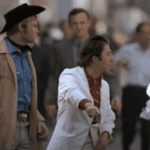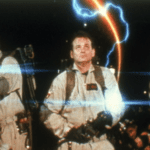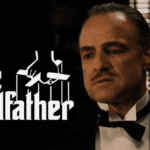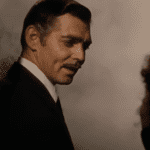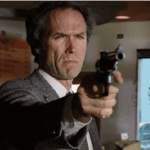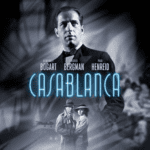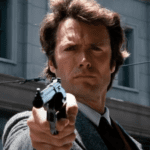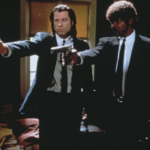The Origin of ‘Show Me the Money’
The phrase “Show Me The Money” originates from the 1996 film “Jerry Maguire,” directed by Cameron Crowe. Within the context of the movie, Jerry Maguire, portrayed by Tom Cruise, is a sports agent facing a career crisis. After experiencing a moral awakening, he strives to promote a more personal approach to sports management but is met with skepticism and challenges. This pivotal moment leads him to articulate the phrase during a phone call with his only client, Rod Tidwell, played by Cuba Gooding Jr.
The cultural significance of “show me the money” extends beyond its immediate context in the film.
The phrase has been adopted into mainstream vernacular, often used to express a need for tangible proof or financial incentive in various scenarios. It has become synonymous with themes of ambition, success, and the pursuit of happiness, reflecting the broader societal obsession with wealth and material gain. This saying not only resonates with audiences who have experienced similar struggles in their professions but also highlights the moral and ethical dilemmas faced by individuals in the pursuit of success.
As a result, “show me the money” has transcended its cinematic origins to become a permanent fixture in popular culture, continuing to evoke discussions about the intertwining of money, loyalty, and personal integrity.
Character Dynamics: Jerry and Rod
The relationship between Jerry Maguire and Rod Tidwell is central to the narrative of the film, acting as a compelling illustration of the complexities that can arise in a professional agent-client dynamic. Initially, Jerry serves as a typical sports agent, focused primarily on securing lucrative contracts for his clients, while Rod, a struggling football player, yearns for recognition and financial stability. Their relationship begins to transform significantly after the pivotal moment encapsulated by the phrase, “Show me the money.”
This high-energy exchange symbolizes not only Rod’s demands for validation but also acts as a catalyst for change in Jerry’s character. Rod’s insistence on Jerry demonstrating his commitment to him as a client forces Jerry to confront the superficiality that has characterized his previous professional interactions. This moment is transformative for both characters; for Jerry, it represents a departure from his previous transactional view of relationships in favor of a more sincere and vested approach.
As their relationship evolves, it deepens beyond mere financial transactions, revealing the emotional stakes involved in their connection. Jerry begins to understand that Rod’s aspirations extend far beyond monetary compensation; they encompass respect, loyalty, and genuine recognition of his talent. Conversely, Rod’s confidence grows as he realizes Jerry is genuinely invested in his success, fostering a stronger bond rooted in mutual support and understanding.
Thus, the phrase “Show me the money” transcends its literal meaning, illustrating the struggles both men face—Rod’s quest for legitimacy as an athlete and Jerry’s need to redefine his personal and professional identity. Their evolving dynamic ultimately portrays the power of empathy and solidarity in overcoming personal and professional challenges, making their relationship one of the most memorable aspects of the film.
Themes of Money and Success in Jerry Maguire
In the film “Jerry Maguire,” money serves as a central theme that intertwines with notions of success and personal value. The iconic phrase “show me the money” highlights not only the pursuit of monetary gain but also critiques the materialistic nature of the sports industry. Throughout the narrative, Jerry Maguire, portrayed by Tom Cruise, navigates the complexities of an industry driven by profit, where the pressures of financial success often overshadow ethical considerations. This dynamic raises pertinent questions regarding morality and the sacrifices professionals make in their quest for achievement.
The film paints a stark picture of a sports culture where athletes are commodified and success is frequently equated to financial prosperity. As Jerry’s character evolves, he begins to reflect on the moral dilemmas that accompany such ambitions. His journey emphasizes a recurring conflict between genuine relationships and the allure of monetary rewards. This dichotomy becomes particularly evident as Jerry forges a deeper connection with his single client, Rod Tidwell, played by Cuba Gooding Jr. The evolution of their relationship suggests that true success transcends financial milestones, advocating for a more comprehensive definition of achievement based on human connection and trust.
Furthermore, the film challenges viewers to consider what success truly means. The characters experience moments of reckoning where they must confront their values and choices. For instance, the struggle to balance personal integrity with professional aspirations becomes a pivotal aspect of the plot. This reflection serves as a critique of a society that often prioritizes wealth over meaningful connections. The overarching message is that while financial gain remains a significant element within professional realms, it should not overshadow the importance of authentic human interactions and integrity in defining success.

The Legacy of ‘Show Me the Money’ in Popular Culture
The phrase “show me the money,” popularized by the 1996 film Jerry Maguire, has left an indelible mark on popular culture since its inception. Initially serving as a rallying cry for the character Jerry Maguire, it has transcended its cinematic origins to become a catchphrase used in various contexts. This phrase encapsulates the universal desire for transparency and straightforwardness, especially in a financial sense, making it resonate powerfully across different demographics.
In the realm of advertising, “show me the money” has been co-opted to emphasize the importance of delivering results and value to consumers. Brands have utilized the phrase to communicate their commitment to tangible benefits, thus establishing a direct connection with their audience. The phrase’s rhythmic quality and assertive tone make it particularly effective in marketing campaigns, reinforcing the idea that consumers deserve prompt and clear returns on their investments.
Furthermore, the phrase has made significant inroads into the music industry. Various artists in hip-hop and pop music have adopted it, often using it in lyrics to express themes of ambition, success, and the relentless pursuit of wealth. This integration into popular music has not only broadened its reach but has also solidified its association with aspiration and hustle, appealing to younger audiences who seek inspiration in their daily lives.
In everyday vernacular, “show me the money” is frequently articulated in discussions about finances, politics, and even relationships. Its enduring presence in common dialogue speaks to our collective inclination toward directness in matters of value. Such relevance today reflects a cultural ethos that prioritizes authenticity and results, ensuring that this catchphrase remains prominent across platforms and settings.
The Full Show Me The Money Quote
Rod confirms to Jerry that he is going to continue with Jerry as his agent
Jerry Maguire: That’s, that’s great. I’m very… happy.
Rod Tidwell: Are you listenin’?
Jerry Maguire: Yes!
Rod Tidwell: That’s what I’m gonna do for you: God bless you, Jerry. But this is what you gonna do for me. You listenin’, Jerry?
Jerry Maguire: Yeah, what, what, what can I do for you, Rod? You just tell me what can I do for you?
Rod Tidwell: It’s a very personal, a very important thing. Hell, it’s a family motto. Are you ready, Jerry?
Jerry Maguire: I’m ready.
Rod Tidwell: I wanna make sure you’re ready, brother. Here it is: Show me the money. Oh-ho-ho! SHOW! ME! THE! MONEY! A-ha-ha! Jerry, doesn’t it make you feel good just to say that! Say it with me one time, Jerry.
Jerry Maguire: Show you the money.
Rod Tidwell: Oh, no, no. You can do better than that, Jerry! I want you to say it with you, with meaning, brother! Hey, I got Bob Sugar on the other line; I better hear you he can say it!
Jerry Maguire: Yeah, yeah, no, no, no. Show you the money.
Rod Tidwell: No! Not show you! Show me the money!
Jerry Maguire: Show me the money!
Rod Tidwell: Yeah! Louder!
Jerry Maguire: Show me the money!
Rod Tidwell: Yes, but, brother, you got to yell that shit!
Jerry Maguire: Show me the money!
Rod Tidwell: I need to feel you, Jerry!
Jerry Maguire: Show me the money!
Rod Tidwell: Jerry, you got to yell!
Jerry Maguire: [screaming] Show me the money! Show me the money!
Rod Tidwell: Do you love this black man!
Jerry Maguire: I love the black man! Show me the money!
Rod Tidwell: I love black people.
Jerry Maguire: I love black people!
Rod Tidwell: Who’s your motherfucker, Jerry?
Jerry Maguire: You’re my motherfucker!
Rod Tidwell: Whatcha gonna do, Jerry?
Jerry Maguire: Show me the money!
Rod Tidwell: Unh! Congratulations, you’re still my agent.
Other Notable Quotes From Jerry Maguire
You Had Me At Hello – Jerry Maguire
The quote “You had me at hello,” delivered with profound emotion in the film Jerry Maguire, has transcended its cinematic origins to become an enduring touchstone in popular culture. Its simplicity and depth encapsulate the instant connection many people feel in romantic relationships. This phrase has been referenced countless times across various media, from television shows to literature, demonstrating its wide-reaching appeal and relevance in discussions about love and relationships. Its recurring presence in popular discourse emphasizes a shared understanding of romance and connection, often serving as shorthand for a moment of emotional vulnerability and intimacy.
Fans frequently invoke “You had me at hello” to express their own experiences of love at first sight or profound connections that defy explanation. The quote’s usage in romantic contexts—whether in conversations, social media posts, or wedding vows—highlights its significance as a cultural emblem of romance. It encapsulates the idea that meaningful relationships can spark from the simplest interactions, resonating strongly with audiences who seek to articulate their feelings towards loved ones.
Moreover, the influence of “You had me at hello” extends beyond mere sentimentality. It has become emblematic of a certain style of romantic storytelling that emphasizes authenticity and emotional depth. As a result, the phrase has inspired filmmakers and writers to explore similar themes in their narratives, creating a framework for depicting love and relationships that prioritizes personal connection over traditional courtship tropes. This broader implication in the exploration of love nuances demonstrates the quote’s continued relevance in today’s dialogues around relationships.
In conclusion, the quote “You had me at hello” remains a powerful expression of love and connection, solidifying its place in the lexicon of popular culture. Its influence, reflected in numerous references and adaptations, underscores the universal human experience of falling in love and the desire for meaningful connections with others.

You Had Me At Hello – Full Movie Quote
Jerry Maguire : Hello. Hello. I’m looking for my wife.
Dorothy looks up, robbed of words. Stunned, she does not move and looks quite apprehensive.
Jerry Maguire : Wait. Okay, okay. Okay. If this is where it has to happen, then this is where it has to happen. I’m not letting you get rid of me. How about that? This used to be my specialty. You know, I was good in the living room. They’d send me in there, I’d do it alone. And now I just… I don’t know. But tonight, our little project, our company, had a very big night. A very, very big night. But it wasn’t complete, wasn’t nearly close to being in the same vicinity as complete, because I couldn’t share it with you. I couldn’t hear your voice, or laugh about it with you. I missed my wife. We live in a cynical world, a cynical, cynical world, and we work in a business of tough competitors. I love you. You complete me. And if I just had…
Dorothy Boyd : (interrupting) Shut up. Just shut up…..You had me at hello. You had me at hello.
More Movie Quotes To Inspire You
- Why So Serious? – The Dark Knight
 Introduction to The Dark Knight and The Joker Ever wondered why a movie quote haunts us even years after its release? The Dark Knight offers lines so impactful they’ve etched themselves into pop culture, with none more famous than the Joker’s taunting query, “Why so serious?” Introduction to this cinematic marvel is almost unnecessary, but… Read more: Why So Serious? – The Dark Knight
Introduction to The Dark Knight and The Joker Ever wondered why a movie quote haunts us even years after its release? The Dark Knight offers lines so impactful they’ve etched themselves into pop culture, with none more famous than the Joker’s taunting query, “Why so serious?” Introduction to this cinematic marvel is almost unnecessary, but… Read more: Why So Serious? – The Dark Knight - “I’m Walking Here, I’m Walking Here” – Midnight Cowboy
 Ever feel like the world might just run you over if you don’t stand your ground? Imagine navigating the chaotic streets of NYC in the ’60s. Sounds intense, right? Well, that’s exactly what happens in the iconic scene from Midnight Cowboy where Dustin Hoffman’s character boldly claims his turf with ‘I’m walking here!’ What’s even… Read more: “I’m Walking Here, I’m Walking Here” – Midnight Cowboy
Ever feel like the world might just run you over if you don’t stand your ground? Imagine navigating the chaotic streets of NYC in the ’60s. Sounds intense, right? Well, that’s exactly what happens in the iconic scene from Midnight Cowboy where Dustin Hoffman’s character boldly claims his turf with ‘I’m walking here!’ What’s even… Read more: “I’m Walking Here, I’m Walking Here” – Midnight Cowboy - “I Love the Smell of Napalm in the Morning” – Apocalypse Now
 Imagine waking up at dawn, surrounded by thick jungle, the air heavy with tension. Then, boom! The unmistakable scent of sweeping devastation—napalm. It’s chaotic, surreal, and strangely, some say it’s beautiful. Sounds wild, right? That’s war in Apocalypse Now, friends. Ready to dive into the psyche behind one of cinema’s most enduring lines? It’s more… Read more: “I Love the Smell of Napalm in the Morning” – Apocalypse Now
Imagine waking up at dawn, surrounded by thick jungle, the air heavy with tension. Then, boom! The unmistakable scent of sweeping devastation—napalm. It’s chaotic, surreal, and strangely, some say it’s beautiful. Sounds wild, right? That’s war in Apocalypse Now, friends. Ready to dive into the psyche behind one of cinema’s most enduring lines? It’s more… Read more: “I Love the Smell of Napalm in the Morning” – Apocalypse Now - May The Force Be With You – Star Wars
 “May the Force Be With You” – An Iconic Star Wars Quote One of the most recognizable phrases in cinema history, “May the Force be with you,” has become synonymous with the Star Wars franchise. This simple yet powerful line encapsulates the essence of hope, guidance, and the struggle between good and evil. Recognised by The American Film Institute… Read more: May The Force Be With You – Star Wars
“May the Force Be With You” – An Iconic Star Wars Quote One of the most recognizable phrases in cinema history, “May the Force be with you,” has become synonymous with the Star Wars franchise. This simple yet powerful line encapsulates the essence of hope, guidance, and the struggle between good and evil. Recognised by The American Film Institute… Read more: May The Force Be With You – Star Wars - You Talkin’ To Me? – Taxi Driver – Robert De Niro
 Think you know movie quotes? Hold on tight because “You talkin’ to me?” might just be the most enigmatic of them all. Dive into a world where one phrase encapsulates societal angst and alienation with gripping intensity. Travis Bickle, played by the legendary Robert De Niro, interrogates not just his surroundings but his very existence.… Read more: You Talkin’ To Me? – Taxi Driver – Robert De Niro
Think you know movie quotes? Hold on tight because “You talkin’ to me?” might just be the most enigmatic of them all. Dive into a world where one phrase encapsulates societal angst and alienation with gripping intensity. Travis Bickle, played by the legendary Robert De Niro, interrogates not just his surroundings but his very existence.… Read more: You Talkin’ To Me? – Taxi Driver – Robert De Niro - “These Are Not the Droids You Are Looking For” – A Star Wars Quote
 Few movie quotes have transcended time and become as iconic as Obi-Wan Kenobi’s famous line, “These are not the droids you are looking for.” This phrase, uttered in Star Wars: Episode IV – A New Hope (1977), has cemented itself in pop culture history. Beyond its significance in the movie, the line has evolved into a metaphor for persuasion,… Read more: “These Are Not the Droids You Are Looking For” – A Star Wars Quote
Few movie quotes have transcended time and become as iconic as Obi-Wan Kenobi’s famous line, “These are not the droids you are looking for.” This phrase, uttered in Star Wars: Episode IV – A New Hope (1977), has cemented itself in pop culture history. Beyond its significance in the movie, the line has evolved into a metaphor for persuasion,… Read more: “These Are Not the Droids You Are Looking For” – A Star Wars Quote - Don’t Cross The Streams – Ghostbusters
 In the pantheon of movie quotes that have wormed their way into our collective consciousness, few have the staying power of “Don’t Cross The Streams” from the 1984 supernatural comedy classic, Ghostbusters. This seemingly innocuous phrase, uttered with deadpan seriousness by Harold Ramis’s Dr. Egon Spengler, has become more than just a line from a… Read more: Don’t Cross The Streams – Ghostbusters
In the pantheon of movie quotes that have wormed their way into our collective consciousness, few have the staying power of “Don’t Cross The Streams” from the 1984 supernatural comedy classic, Ghostbusters. This seemingly innocuous phrase, uttered with deadpan seriousness by Harold Ramis’s Dr. Egon Spengler, has become more than just a line from a… Read more: Don’t Cross The Streams – Ghostbusters - “I”m Gonna Make Him An Offer He Can’t Refuse” – The Godfather
 “I’m Gonna Make Him an Offer He Can’t Refuse” – The Godfather’s Timeless Quote and Its Cultural Legacy Few movie quotes in cinematic history have achieved the legendary status of “I’m gonna make him an offer he can’t refuse.” Uttered by Marlon Brando as Don Vito Corleone in The Godfather (1972), this line is more than just a clever… Read more: “I”m Gonna Make Him An Offer He Can’t Refuse” – The Godfather
“I’m Gonna Make Him an Offer He Can’t Refuse” – The Godfather’s Timeless Quote and Its Cultural Legacy Few movie quotes in cinematic history have achieved the legendary status of “I’m gonna make him an offer he can’t refuse.” Uttered by Marlon Brando as Don Vito Corleone in The Godfather (1972), this line is more than just a clever… Read more: “I”m Gonna Make Him An Offer He Can’t Refuse” – The Godfather - Frankly My Dear I Don’t Give A Damn – Gone With The Wind
 “Frankly, My Dear, I Don’t Give a Damn”: An Enduring Movie Quote and Its Cultural Impact Few movie quotes in cinematic history have stood the test of time like Rhett Butler’s famous line, “Frankly, my dear, I don’t give a damn,” from the 1939 classic Gone With the Wind. Delivered with cool indifference by Clark Gable in his… Read more: Frankly My Dear I Don’t Give A Damn – Gone With The Wind
“Frankly, My Dear, I Don’t Give a Damn”: An Enduring Movie Quote and Its Cultural Impact Few movie quotes in cinematic history have stood the test of time like Rhett Butler’s famous line, “Frankly, my dear, I don’t give a damn,” from the 1939 classic Gone With the Wind. Delivered with cool indifference by Clark Gable in his… Read more: Frankly My Dear I Don’t Give A Damn – Gone With The Wind - Dirty Harry – Go Ahead Make My Day – Sudden Impact
 The ‘Dirty Harry’ franchise, a cornerstone of American cinema, has captivated audiences since its inception in the early 1970s. This series primarily revolves around the resolute and gritty San Francisco police inspector, Harry Callahan, masterfully portrayed by Clint Eastwood. Callahan’s character is emblematic of a tough, no-nonsense cop wielding a .44 Magnum, known for his… Read more: Dirty Harry – Go Ahead Make My Day – Sudden Impact
The ‘Dirty Harry’ franchise, a cornerstone of American cinema, has captivated audiences since its inception in the early 1970s. This series primarily revolves around the resolute and gritty San Francisco police inspector, Harry Callahan, masterfully portrayed by Clint Eastwood. Callahan’s character is emblematic of a tough, no-nonsense cop wielding a .44 Magnum, known for his… Read more: Dirty Harry – Go Ahead Make My Day – Sudden Impact - Greed Is Good – Wall Street Movie Quote
 Released in 1987, the film Wall Street, directed by Oliver Stone, stands as a significant narrative within the landscape of American cinema, reflecting the zeitgeist of the era. Set against the backdrop of the bustling financial district of New York City, the film delves into the moral quandaries faced by those entrenched in the world… Read more: Greed Is Good – Wall Street Movie Quote
Released in 1987, the film Wall Street, directed by Oliver Stone, stands as a significant narrative within the landscape of American cinema, reflecting the zeitgeist of the era. Set against the backdrop of the bustling financial district of New York City, the film delves into the moral quandaries faced by those entrenched in the world… Read more: Greed Is Good – Wall Street Movie Quote - Casablanca Famous Movie Quotes
 Released in 1942, “Casablanca” remains one of the most critically acclaimed films in cinematic history. Directed by Michael Curtiz, the film stars iconic actors such as Humphrey Bogart and Ingrid Bergman, whose performances have captivated audiences for decades. Set against the backdrop of World War II, “Casablanca” combines elements of romance, sacrifice, and patriotism, making… Read more: Casablanca Famous Movie Quotes
Released in 1942, “Casablanca” remains one of the most critically acclaimed films in cinematic history. Directed by Michael Curtiz, the film stars iconic actors such as Humphrey Bogart and Ingrid Bergman, whose performances have captivated audiences for decades. Set against the backdrop of World War II, “Casablanca” combines elements of romance, sacrifice, and patriotism, making… Read more: Casablanca Famous Movie Quotes - Dirty Harry – Do You Feel Lucky Punk?
 The Dirty Harry film series, which began with the release of the first film in 1971, has become a significant cultural phenomenon in American cinema. Centered around the character of Harry Callahan, portrayed with remarkable intensity by Clint Eastwood, the series has captivated audiences with its exploration of complex themes such as justice, morality, and… Read more: Dirty Harry – Do You Feel Lucky Punk?
The Dirty Harry film series, which began with the release of the first film in 1971, has become a significant cultural phenomenon in American cinema. Centered around the character of Harry Callahan, portrayed with remarkable intensity by Clint Eastwood, the series has captivated audiences with its exploration of complex themes such as justice, morality, and… Read more: Dirty Harry – Do You Feel Lucky Punk? - Ezekiel 25:17 Pulp Fiction – Jules (Samuel L Jackson)
 Introduction to Pulp Fiction and Its Iconic Moments Quentin Tarantino’s film Pulp Fiction, released in 1994, is a landmark in modern cinema, renowned for its bold storytelling and unique narrative structure. The film intertwines several seemingly unrelated storylines that converge in unexpected ways, creating an intricate tapestry of characters and events that captivates audiences. Each… Read more: Ezekiel 25:17 Pulp Fiction – Jules (Samuel L Jackson)
Introduction to Pulp Fiction and Its Iconic Moments Quentin Tarantino’s film Pulp Fiction, released in 1994, is a landmark in modern cinema, renowned for its bold storytelling and unique narrative structure. The film intertwines several seemingly unrelated storylines that converge in unexpected ways, creating an intricate tapestry of characters and events that captivates audiences. Each… Read more: Ezekiel 25:17 Pulp Fiction – Jules (Samuel L Jackson) - You Can’t Handle The Truth – A Few Good Men
 A Few Good Men, a courtroom drama film, was released in 1992 and directed by Rob Reiner. The film is adapted from a play of the same name by Aaron Sorkin, who also penned the screenplay. It features a distinguished cast including Tom Cruise, Demi Moore, and Jack Nicholson, whose performances were pivotal in bringing… Read more: You Can’t Handle The Truth – A Few Good Men
A Few Good Men, a courtroom drama film, was released in 1992 and directed by Rob Reiner. The film is adapted from a play of the same name by Aaron Sorkin, who also penned the screenplay. It features a distinguished cast including Tom Cruise, Demi Moore, and Jack Nicholson, whose performances were pivotal in bringing… Read more: You Can’t Handle The Truth – A Few Good Men - Show Me The Money – Jerry Maguire
 The Origin of ‘Show Me the Money’ The phrase “Show Me The Money” originates from the 1996 film “Jerry Maguire,” directed by Cameron Crowe. Within the context of the movie, Jerry Maguire, portrayed by Tom Cruise, is a sports agent facing a career crisis. After experiencing a moral awakening, he strives to promote a more… Read more: Show Me The Money – Jerry Maguire
The Origin of ‘Show Me the Money’ The phrase “Show Me The Money” originates from the 1996 film “Jerry Maguire,” directed by Cameron Crowe. Within the context of the movie, Jerry Maguire, portrayed by Tom Cruise, is a sports agent facing a career crisis. After experiencing a moral awakening, he strives to promote a more… Read more: Show Me The Money – Jerry Maguire



